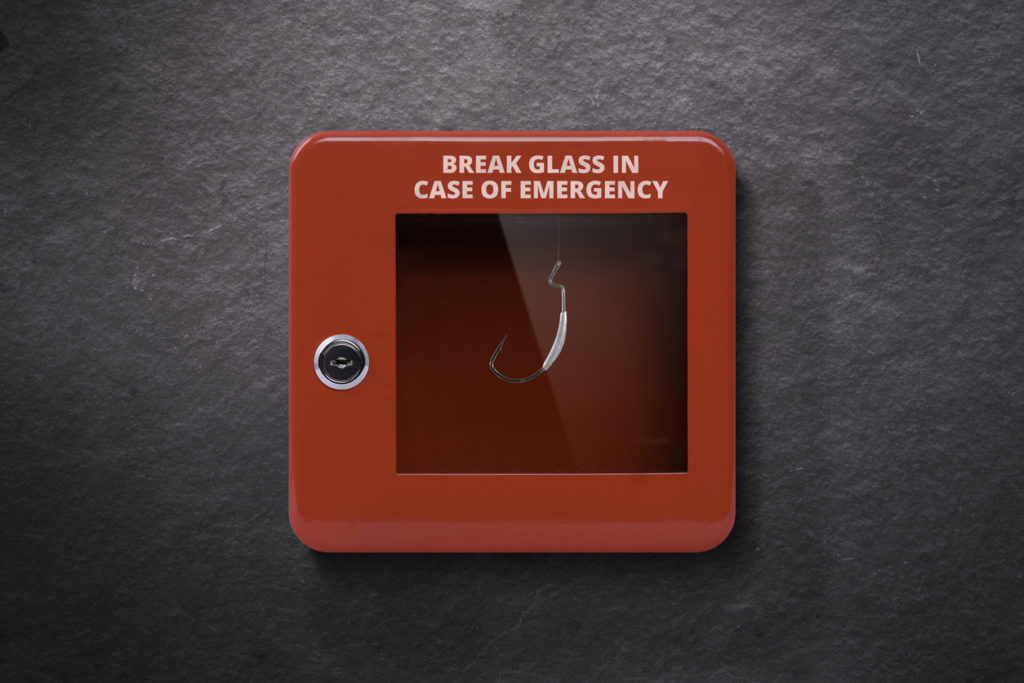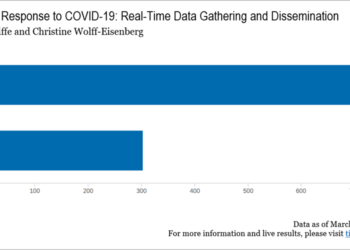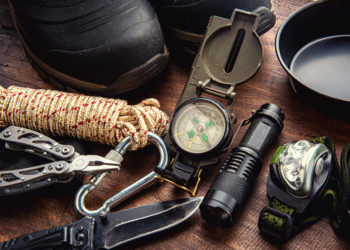It is a moment for making choices by which we may be measured for decades, or more.
In the face of the coronavirus pandemic that is gripping the world, that has ground the global economy to a stuttering halt with grievous consequences, infected hundreds of thousands at this writing and killed tens of thousands with numbers sure to mount exponentially, what choices will we make, and what values will guide our decisions?
Last week the Internet Archive (IA), a non-profit entity dedicated to “Universal Access to All Knowledge” decided that its answer to this clarion call is to open what it termed a “National Emergency Library.” The service is based on IA’s earlier efforts to offer “controlled digital lending,” the idea that IA loans one digitized version at a time for every print copy it sequesters — a concept based on fair use doctrine, but without legal standing. Through this model, the IA has for some time been offering access to a massive quantity of digitized – including still in-copyright — materials. Now, for the duration of the US national emergency, IA is offering access to its digitized books without any limitations based on sequestered print copies and doing so globally. “It is meant,” the IA has asserted of the National Emergency Library, “to meet a very specific, extraordinary need” as university, school and public libraries around the world have shuttered.

From some quarters, there were huzzahs. In the New Yorker Jill Lepore declared the emergency library “a gift to readers everywhere.” Uncharacteristically breathlessly, Lepore compared the IA’s action to the World War II “Council on Books In Wartime,” which sent books to service members around the world and “created a nation of readers.” NPR lauded the IA for “Lend[ing] A Hand — And Lots Of Books! — During Pandemic.” From these initial reactions, and from the IA’s own materials, the focus is very clearly on access.
The Author’s Guild and the Association of American Publishers see the emergency library differently. “…appalled by the Internet Archive’s (IA) announcement that it is now making millions of in-copyright books freely available online without restriction on its Open Library site under the guise of a National Emergency Library,” the AG argues that the “IA has no rights whatsoever to these books, much less to give them away indiscriminately without consent of the publisher or author.” The statement from AAP’s president and CEO Maria Pallante left no doubt about her organization’s views: “We are stunned by the Internet Archive’s aggressive, unlawful, and opportunistic attack on the rights of authors and publishers in the midst of the novel coronavirus pandemic.”
Individual authors, librarians, and publishers, on social media and in interviews, expressed skepticism, or anger, or both. Lisa Lucas, Executive Director of the National Book Foundation, tweeted that “this is…not a gift for authors or publishers or indie booksellers many of whom are struggling quite a bit.” Author Alexander Chee tweeted that “As a reminder, there is no author bailout, booksellers bailout, or publisher bailout. The Internet Archive’s “emergency” copyrights grab endangers many already in terrible danger.” John Sherer, Director of the University of North Carolina Press, shared that he had asked the IA to take down UNCP books (disclosure: the Omohundro Institute is a publishing partner with UNCP so this request included our books). “If they had asked,” Sherer noted, “I would have gladly given them permission to open them up for a period of time. Interestingly, their response was not, “great, we’re now asking for your permission.” It was essentially, send us your ISBNs so we can remove them. Makes you think that the hill they’re dying on is not making books open, but on making them open using the method they’ve chosen.” Writer T.J. Stiles echoed Sherer. Having previously asked the IA to withdraw his books from their circulation, “under the cover of the pandemic, it has acted exactly as I feared it would…it is showing exactly why we need to defend copyright even when violators assure us all will be well. This isn’t a slippery slope — it’s a landslide.”
Given the extent of library e-book lending, and the intensive efforts of scholarly publishers to open content through JSTOR and Project MUSE, for example, HathiTrust’s Emergency Temporary Access Service and other initiatives, I wondered whom might this “emergency library” be helping? I asked some local experts, namely my graduate students. These two dozen students, doctoral advisees and students enrolled in my graduate seminar this semester, all find themselves at the mercy of digital content availability. Our university library is doing a terrific job of trying to match faculty and students with resources, but for graduate students in the humanities, the books in a library are, as one colleague put it to me, like milk from the grocery store. You can find substitutes, but they won’t work as well, or at all. If they require a specific book, a related book won’t do. Still, all but a few of the approximately 60 books we are discussing in the seminar are available through our library. A small number of books students needed for research that were not available either through one of the digital collections from our library or via a short view on Google Books were indeed in the IA. Following the IA’s process of creating a login, students reported that they were able to “check out” books that they needed for checking citations, or for background research.
I tried it out myself. A regular user of the IA’s regular business of offering a quite good platform and downloadable PDFs of out of copyright work, I often rely on it for nineteenth-century local histories and genealogies I use in my research. I have relied heavily on the IA’s copies of an indispensable resource, Max Ferrands’s 1911 edition of the Records of the Federal Convention of 1787, a far superior platform than the Library of Congress’s. But the emergency library was a lot clunkier. And it made me wonder just how useful it was going to be. Perhaps we’ll get some numbers? The sign-in is more laborious. To borrow a book you must have an Internet Archive account, and agree to the 2014 terms of service. To download and read on your own screen you must also acquire an Adobe account, and then download Adobe Digital Editions (4.5). In the ritual unhindered by coronavirus, I created a new account at the Internet Archive, having failed to locate a saved password, and, same for my Adobe account, and proceeded to borrow a book for 14 days. It was Robert Gross’s 1976 The Minutemen and their World, a mainstay of undergraduate history education for more than four decades. The platform is awkward, and the reading experience is, to put it mildly, not conducive to intensive reading. Presumably my borrowed copy, via the Adobe platform, will disappear like Cinderella’s pumpkin 13 days hence. I was not overwhelmed. My students’ response to the IA Emergency Library, their expression of relief at having something to tide them over until they could get physical books from our library and through interlibrary loan – the format they consistently prioritize — suggests that the language of an emergency library was effective even if, in practice, it is more of a supplement to other digital resources.
The intense reaction to the IA from authors and publishers — and even some librarians — suggests that the language and the premise of the emergency library rankled them as much as it relieved my students. Mary Dudziak, Asa Griggs Candler Professor of Law at Emory University, put her finger on it. Appreciative of how her law students are able to access some books in digital form through IA, she called the emergency library move a “godsend.” But then, having read the IA’s founder Brewster Kahle on “Universal Access to All Knowledge,” she feels less sanguine. In addition to her concerns about the sustainability of knowledge production, especially for nonprofit presses, as a historian of wartime exigencies Dudziak knows very well that action taken in the name of emergency can be opportunistic, and emergencies are rarely finite. She said she is “highly skeptical” that, given Kahle’s expressed commitments, the IA will close its “emergency” library with any alacrity.
What seems most discordant to me is that, if there is a theme to the coronavirus crisis, it is the recognition of integrated social systems. We are more aware of, and more articulate about, our interdependence. The news is more attentive to supply chains and the people who staff them, from food suppliers and retailers, medical providers including hospital janitorial staff, and public school counselors and teachers. It is this human infrastructure that is, as should have been obvious all along, irreplaceable. The dramatic loss of income in the food service, hospitality and travel industries, and the crushing blow to small businesses that make up our communities, from bookstores to nail salons, is flashing red lights around the importance of fair, regular and reliable paid labor for the skills and to the people that make up the fabric of society.
Thus it does seem supremely odd, and quite out of step with the moment, for the Internet Archive to prioritize the needs of readers as if they can be disaggregated from the systems in which reading material is produced. If you think something should be free, you likely don’t have a very good grasp of what it costs to produce — and who needs to be paid in the course of that production. Knowledge is not found under a tree. It is not a natural but a human product, born of labor but also of talent and training. It requires investment, often from individuals, but almost always from organizations.
To isolate readers from the systems of which they are one part is to ignore this interdependence. To elevate the needs of the reader above all others is to dismiss the compensated labor of archivists, authors, compositors, designers, editors, librarians, marketers, metadata creators, and all the other myriad people involved in bringing knowledge into being and into the marketplace. We can be consumers for free, but not compensated producers.
The Internet Archive is not breaking the glass to save anyone but rather seems to be just… breaking glass. It is not meeting the moment of crisis; it is missing the moment to learn and to teach the interdependent production of humanity’s greatest work: collaborative knowledge.
Discussion
27 Thoughts on "The Internet Archive Chooses Readers"
Every crisis leads to an attack on basic rights and freedoms, and those rights and freedoms, once removed under the cover of ’emergency provisions’ are very hard to recover. Governments do this regularly of course, but other advocacy groups also seek to take advantage. We at Ingenta have many of our customers asking us to make some or all of their content free for the duration (not OA – free – though it’s amazing how many publishers don’t seem to appreciate the difference..). But for an organization to simply subvert hundreds of years of copyright protection laws, and simply decide to – for want of a better word – fence stolen material is simply not OK, no matter how well meaning. It’s a deep insult not only to authors but to everyone who labors in, and derives their living from, the work of publishers.
I think you’re being far too kind to the Internet Archive, as this is theft on a grand scale, taking advantage of the distraction of the pandemic, not all that different in my mind from the smash and grab robbery of a Van Gogh painting from a Dutch museum (https://www.npr.org/2020/03/30/823965150/van-gogh-painting-stolen-after-thieves-apparently-smash-dutch-museum-entrance).
While this article looks at scholars, let’s be clear, the Internet Archive is promoting this to fiction readers:
https://twitter.com/internetarchive/status/1244747312892481537
This is compounding the damage at a time when bookstores are going under, and writers are struggling to keep afloat as their book and lecture tours are canceled. The devaluing of creation and culture here is shameless and cruel to those who are losing their livelihoods.
I’ve seen an astonishing number of people on lists who basically argue that this is theft-light and that even if it is theft, it’s okay because it’s an emergency.
But to my mind the bigger issue isn’t the IA vs the lost revenue of authors and publishers and booksellers — that’s critical — but the way the IA has ramped up rhetoric of opposition between consumers and producers of this content. False binary. I know that the revenue issues are real and urgent, but the framework is what will persist in exacerbating that if we can’t turn it around.
As Karin notes, it struck me that by including works that are not orphaned or out of print or otherwise unobtainable, IA has deliberately ignored that there is an ongoing relationship between the producers, including both authors and publishers, and the object of their production that encompasses all kinds of both commercial and social relationships, such as the relationship between authors, bookstores, and readers in marketing events, for example. IA is treating the book as pure content commodity, which even if not tied to a direct profit motive for them, seems pretty alienating of that labor and those social relationships. For those who see this as some kind of blow to capitalism and profit, I’m not sure Marx would approve. In fact, in the context of internet provision of content, I think there are some complex analyses to be made about all kinds of issues if someone was inclined to look at it from late stage capitalism and the internet’s support of different kinds of social relationships — more anonymous and autonomous versus more intimate and connected to authors, and the role of often autocratic technology providers in deciding to move fast and break things. In this context, “rights” often are interpreted as commercial rights, but there are other kinds of rights — human, individual, etc.
Creators of all kinds are also suffering economic hardships during the pandemic, and the IA is just adding to their deprivations. Songwriters aren’t getting royalties because bars and restaurants are closed, therefore not playing music. Live music venues are closed, so gigging musicians are sidelined. Music streaming is down, likely because people aren’t commuting. Actors, playwrights, and service people around Broadway and theater scenes everywhere are suffering. Now, authors, editors, bookstore owners, and publishers have to also have money taken out of their pockets because the IA decided unilaterally to do this?
The IA is out of step with other creative communities working to ensure economic vitality and practical survival for their creators. The Music Modernization Act created a court to arbitrate disputes over royalties. The key concept is around a “willing participant” notion — that is, what price would authors demand and buyers pay if each were a willing participant.
The IA has made authors and publishers unwilling participants, and set the price at $0. They are showing they don’t care about creators, and are impractical and out of touch with financial realities.
Thanks, Karin, for a balanced and thoughtful article. It never ceases to amaze me why it is so difficult for some to understand the principle that works of the intellect represent labor that needs and deserves to be compensated. People need groceries during this crisis too, but no one seems to be suggesting that they shouldn’t have to pay for those groceries. Why are authors, publishers, and other parts of the value chain that produces and maintains our intellectual and cultural artifacts smeared as greedy when they ask to be compensated, but farmers and truckers and grocers are not?
During World War II, about 122 million Armed Services Editions (ASEs) paperback books were distributed to the men and women in the U.S. military. However, some of the individuals supporting the IA’s recent decision did not mention the important facts in Molly Guptill Manning’s excellent book “When Books Went to War: The Stories That Helped Win World War II” (Houghton Mifflin Harcourt; 2014) that “the council agreed to sell ASEs to the government at cost, plus a one-cent royalty that was split between the author and the original publishing company” (pages 78-79). So, during that crisis, royalties were paid (because of the U.S. Copyright Law), unlike the current IA practice.
My understanding is that ASE was put together by publishers and that no publisher was forced to participate. The Internet Archive’s program forces publisher participation (opt-out basis, which is burdensome) and was put together by Brewster Kahle, who was elected in a landslide. Vigilantism is the real emergency.
Thank you Karin, for articulating so beautifully what I have been trying to convey for many years. I am the senior editor of “born digital” scholarly editions of an early national South Carolina family. The editions are published by the University of Virginia Press’s Rotunda digital imprint, which charges a fee to access its extensive resources – because it costs a lot of time and effort to put that material into a form that can be made available to your browser and make the links all work seamlessly, and then to maintain and upgrade the servers and software that keep it available over the long term. We are constantly berated by scholars and sometimes by the funding sources that help us produce the content for not making our editions”freely available.” We can’t have it both ways. We can’t both be compensated for our own work, but expect everybody else who works to produce content that we need to give it to us without compensation.
Thanks for your comments, Connie, and for the incredible work of the Pinckney Family Papers! I think the more and better we all share what it really costs– not in some abstraction but in the hard work that modestly compensated folks are doing–to make this work available, the better we’ll be. I am just about to watch one of the NHPRC’s youtube series on documentary editions on just this point.
Those who claim to speak for authors (but are often really speaking for publisher profits) are well known for trying to dismiss the importance of fair use in balancing public and private interests in US copyright law. This article does the same by saying that a claim of fair use has “no legal standing”. If what is meant by that is that this interpretation of fair use has not been tested in court, that’s true enough. But a huge swath of legitimate fair uses have likewise not been so tested, so to call it “no legal standing” seems intent on deliberately misleading the readers as well as continuing the rejection of the legitimacy of fair use itself. I’m making no claim on either side of the IA’s actions, but I find it’s necessary to defend the broader principle of fair use whenever and wherever it is so attacked.
For the record, Karin clearly did not assert that the principle of fair use has no legal standing. Instead, she clearly said that the Internet Archive’s specific practice of “controlled digital lending,” while “based on fair use doctrine,” has “no legal standing.”
Just to put some names and faces to this issue: At the time IA announced their National Emergency Library, they were offering open access to 411 still-in-print books from the University of Georgia Press. Now the emergency is ours. 411 is likely a small number compared to what IA is illegally giving away from other publishers, but it’s a significant figure to UGA Press. Working from home, four staff members have had to deal with this–amidst other fires we’re trying to put out, or at least manage.
As UNC Press’s John Sherer says in Karin’s article, the burden is currently on publishers to do the work involved in getting their books taken down from IA. UGA Press was asked by IA to submit a “spreadsheet of titles with ISBNs and/or archive.org identifiers.” IA would then “perform a good faith effort to remove all editions based on your list.” Now that IA’s credibility has taken a deep dive (well, to me it has) I’m a bit suspicious about this take-down process. ISBNs are edition specific. If the work is under copyright, then IA needs to remove all editions of that work from their National Emergency Library. They are not off the hook if an ISBN we send them doesn’t match the one they happen to be using.
Until I soured on IA a few days ago, I used to like them. They are a place where you can find a ton of obscure and hard-to-find content, useful and entertaining, in a variety of formats. Now, to me, they’re a bunch of OA nihilists, giving OA a bad name just when it has been gaining acceptance among responsible, law-abiding parties involved in creating, publishing, distributing, and preserving content. IA: Children playing with matches.
There is a theory that the Internet Archive is intent on forcing a court cases to push for the first-sale doctrine to be applied to e-books. If true, this sort of activist brinksmanship seems reckless and irresponsible, but also suggests there is a larger goal in mind:
Regarding the comment that the IA might want to challenge the first-sale doctrine for e-books:
this issue was part of litigation in the Southern District of New York (SDNY) in the Capitol Records v. Redigi case. Redigi wanted to start a resale web site for a digital product (music). Redigi lost in the SDNY, and they lost on appeal to the Second Circuit; and the Supreme Court of the U.S. refused in 2019 to hear Redigi’s appeal. This first sale doctrine for digital products, including books, looks settled.
And the AAP supported Capitol Records.
See:
Capitol Records, LLC v. ReDigi Inc., 934 F. Supp. 2d 640 (S.D.N.Y. 2013), is a case from the United States District Court for the Southern District of New York …
ReDigi, No. 16-2321 (2d Cir. 2018)…
True, but legal arguments get re-challenged all of the time, don’t they? Perhaps by launching the NEL during an international crisis, they’re seeking to appeal for the reevaluation of first-sale doctrine for e-books by connecting it with fair use. At any rate, the IA leadership probably is trying to force some sort of legal showdown in the future.
I just hope that by making this sort of bold move now with the NEL, which while good for everyone stuck in quarantine is a stretch of fair use allowance, does not cost the future of the Controlled Digital Lending that is fair use.
Thank you, Karin, for this truthful article. This was a carefully masterminded effort, but not sudden. It has been years in the making since the Internet Archive first tested CDL. As with COVID-19, we should have been prepared for it. The assault on copyright is offensive, as are the numerous endorsements of library administrators and the continued arguments that uncontrolled digital lending is a “fair use” and that it is legally supported as “digital exhaustion,” which is false.
But it doesn’t have to end here. More is likely brewing where this came from, and we need to do more than regret the current situation. Comparing the Google Book Project with the Internet Archive’s project, Jonathan Band points out in his blog entry “Why a National Emergency Library Would Have Been Unnecessary,” http://www.project-disco.org/intellectual-property/040120-why-a-national-emergency-library-would-have-been-unnecessary/, that the attempted 2008 Google Book Settlement would have created a licensing system for the books digitized by Google through a collective management entity that would have provided payments to authors and publishers going forward. Although that settlement was rejected in the Google case, it is not inconceivable that the idea could be renewed now. I believe that it is time to find a solution to end the ongoing abuses through a system of collective management and licensing, properly established by Congress, that creates a truly fair system for authors into the future. This is a hopeful idea that I believe we have an obligation to pursue to ensure our collective cultural and intellectual future.
Thanks for your comment. I think there’s been some good discussion about how and why the Google books settlement structure might be revived.
I guess I still think that while that could provide some guidance around access and use, the bigger problem to my mind is the continuing disregard –or complete lack of understanding?–about how integrated the production of knowledge (let’s call it a book for now) really is, and how much different types of labor is involved. More close attention to and transparency about this all around might help those who press for immediate access to better understand why that is problematic. But it also can help folks who see the issues around immediate access to better articular their position. I’m not saying anything new and plenty of people have been trying to do this. But to my mind it’s really crucial.
The local history musuem for whom I work republished all of it’s out of print works (5), published after 1987, on the Internet Archive. We did so as a service to our local community and educators in our community. Neither we nor the authors took an economic loss by making out-of-print books, which remain under copyright, freely available. I suppose a press in India may sell one-off’s of them on Amazon, so be it.
I’m glad your museum and authors had the ability to make that decision for themselves. Unfortunately here, the decisions were taken out of the hands of a vast number of authors and copyright holders, particularly those that are going to see an economic loss from the actions of the Internet Archive.
Along with making out-of-copyright works easily available, the kind scenario you describe is IA’s real strength. There’s so much of that kind of work to be done. It’s a valuable service, and it’s ongoing. Yet, somehow, IA has found the resources to engage in an illegal sideline activity–as if they didn’t already have enough to do.
Mr Esposito is correct but the default should be opt-in, NOT opt-out, which requires action by the copyright holder to protect the work where protection (non-infringement), should be the norm. It also presumes that authors/publishers KNOW that the work is being used (or stolen), as if they had nothing else to do but monitor the internet 24/7. We don’t tell shoplifters or muggers they can victimize us so long as we don’t make a formal declaration that they can’t! The law says that the default status is to NOT commit the crime, not freedom to commit it and then seek a remedy after the fact.
And a publisher should not undermine an author’s rights by permitting this kind of “unfair” use.
As we know, in modern works copyrights are clearly identified on the verso of the title page, so no mystery there. When an editor needs permission to use an existing photograph, he searches for the rights holder. This is not very different.
The late Harlan Ellison spent much effort to prevent the theft of his work. He won a few cases and would probably win this one. He used to warn copyright infringers: Put your hand in my pocket to steal my money and what you’ll pull out will be a bloody stump.
Your headline is misleading. The Internet Archive did not choose readers (over authors, I assume is what you meant.) It chose to line its pockets with fees from subscribers who don’t want to pay authors the small royalties they make on their books, some of which took years to write.
It’s because of IA and other online pirates that many authors have seen their income cut to nothing. IA is practicing intellectual property piracy, plain and simple.



